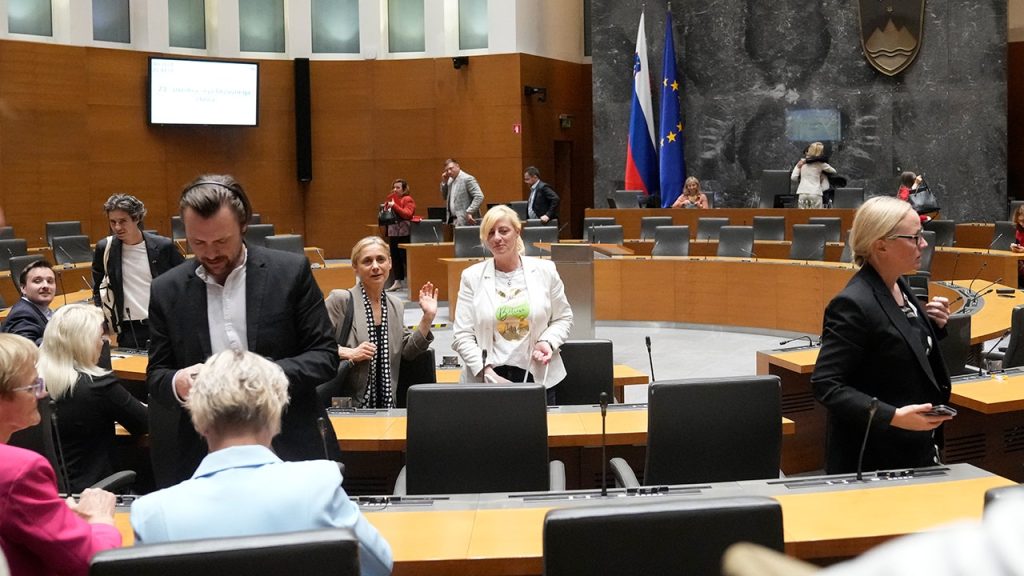Slovenia’s parliament voted in favor of recognizing a Palestinian state following recent similar moves by Spain, Norway, and Ireland. The government endorsed the motion last week, which was then sent to parliament for final approval. Lawmakers voted overwhelmingly in favor of recognition, with 52 in favor and no one against. Foreign Minister Tanja Fajon called the decision a message of hope and peace, emphasizing the belief in a two-state solution for lasting peace in the Middle East. This decision came after discussions with allies earlier in the year, with Prime Minister Robert Golob expressing the need for action and invoking Slovenia’s own struggle for independence.
Currently, only a minority of European Union member states recognize a Palestinian state. Previous recognitions date back to 1988 and 2014, with some East bloc countries and Cyprus being among the early recognizers. The ruling coalition in Slovenia held a comfortable majority in the assembly, making the vote largely expected to pass. However, the main opposition party, the Slovenian Democratic Party, opposes recognition and initially pushed for a referendum on the issue. Their attempts were rejected by parliament, allowing the recognition process to move forward. Slovenia’s role as an independent nation serves as a backdrop for their decision to recognize Palestine, emphasizing the shared struggle for self-determination.
The process of recognizing a Palestinian state in Slovenia began in early May, but was initially put on hold due to the conflict in Gaza. Prime Minister Golob cited the recent violence in Rafah, caused by Israeli attacks, as a reason to accelerate the recognition process. The ongoing war, triggered by a Hamas-led attack in October, has resulted in significant casualties on both sides. Slovenia’s decision to recognize Palestine aligns with the stance of over 140 countries globally, representing a majority of the United Nations members. The move signifies a commitment to supporting Palestinian rights and promoting peace in the region through a two-state solution.
Slovenia’s recognition of a Palestinian state reflects a broader trend of European countries taking steps to acknowledge Palestine’s status. The decision was made in the context of ongoing violence in Gaza, with the government citing recent Israeli attacks as a catalyst for expedited action. By joining other nations in recognizing Palestine, Slovenia aims to contribute to efforts towards peace and stability in the Middle East. The significance of the decision is underscored by Slovenia’s own history of independence, adding a personal resonance to the recognition process. The move has faced opposition within Slovenia’s political landscape, highlighting the complexities and differing perspectives on the issue. However, the parliamentary vote ultimately solidified Slovenia’s position in support of Palestinian statehood.
Recognition of a Palestinian state by Slovenia reflects a nuanced approach to international relations and human rights issues. The decision to formally acknowledge Palestine’s statehood underscores Slovenia’s commitment to upholding principles of self-determination and sovereignty. By aligning with the majority of nations that have recognized Palestine, Slovenia contributes to a growing global consensus on the need for a negotiated two-state solution. The parliamentary vote, despite opposition from some quarters, signals Slovenia’s willingness to engage in diplomatic efforts towards peace in the Middle East. Through its actions, Slovenia emerges as a voice for Palestinian rights and a supporter of conflict resolution through dialogue and cooperation on the international stage.


